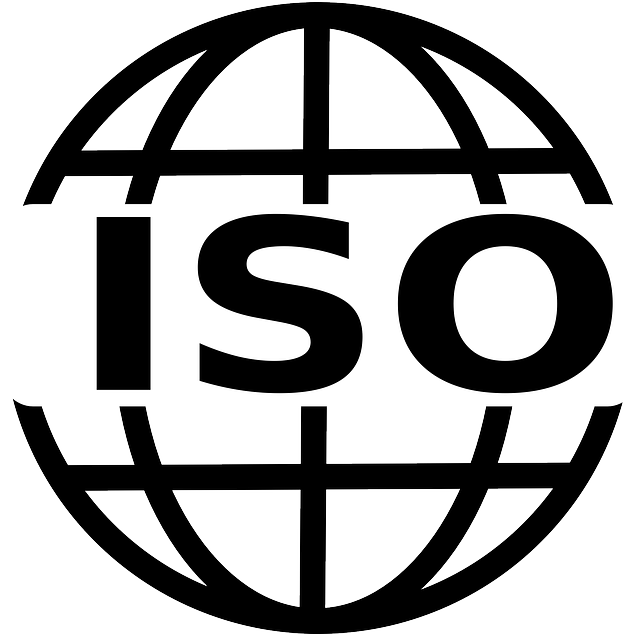SOX compliance accountants play a pivotal role in ensuring the integrity of public companies' financial reporting by implementing and monitoring internal controls, protecting data security, and leveraging advanced IT tools. They navigate complex financial IT systems using specialized software for file security, continuous auditing, automated reporting, and real-time alerts, fostering transparency and reliability. Robust access controls, regular backups, encryption, and role-based permissions ensure data integrity and prevent unauthorized access. Continuous training and education empower these professionals to stay ahead of regulatory changes, adapt to evolving requirements, and maintain public trust in financial operations.
In today’s digital landscape, ensuring financial IT systems meet regulatory standards is non-negotiable for CPAs. This article guides you through the essential elements of SOX compliance, highlighting its role as a foundational framework for maintaining robust financial reporting. We explore specific strategies tailored to CPAs, focusing on data security, access controls, continuous monitoring, and education. By understanding these key areas, accountants can effectively leverage technology to navigate complex regulatory requirements with confidence.
- Understanding SOX Compliance: A Fundamental Framework for Financial IT Systems
- The Role of CPAs in Ensuring Regulatory Adherence Through Technology
- Key Areas of Focus: Data Security and Integrity in Financial IT
- Implementing Robust Access Controls: Protecting Sensitive Information
- Continuous Monitoring and Auditing: Tools for Maintaining SOX Compliance
- Training and Education: Empowering Accountants to Navigate Digital Compliance
Understanding SOX Compliance: A Fundamental Framework for Financial IT Systems

The Sarbanes-Oxley Act (SOX) stands as a cornerstone of financial governance, imposing stringent requirements on public companies to ensure transparency and accuracy in their financial reporting. For CPAs, understanding SOX compliance is not just an academic exercise but a fundamental framework for managing financial IT systems. This legislation mandates robust internal controls over financial reporting (ICFR), emphasizing the integrity and reliability of financial data.
In this context, CPAs play a pivotal role in ensuring that financial IT systems meet these regulatory demands. They must implement and monitor controls that safeguard data integrity, secure systems from unauthorized access, and maintain detailed audit trails. By leveraging specialized accounting compliance IT tools and seeking expert IT legal support, CPAs can effectively navigate the complexities of SOX compliance, fostering trust in the financial landscape for both businesses and investors.
The Role of CPAs in Ensuring Regulatory Adherence Through Technology

Certified Public Accountants (CPAs) play a pivotal role in ensuring financial IT systems maintain regulatory compliance, particularly under Sarbanes-Oxley (SOX) standards. As trusted professionals, they are responsible for upholding the integrity and accuracy of financial data, which is increasingly managed through complex technological systems. CPAs must stay abreast of evolving regulations and leverage technology to implement robust internal controls and processes.
By integrating advanced solutions for CPA file security and compliance monitoring, they can safeguard sensitive financial information and mitigate risks effectively. These regulatory data systems enable continuous auditing, automated reporting, and real-time alerts, allowing CPAs to promptly address any deviations from SOX compliance requirements. This proactive approach not only ensures accuracy but also fosters transparency, boosting the reliability of financial reporting in today’s digital landscape.
Key Areas of Focus: Data Security and Integrity in Financial IT

Maintaining data security and integrity is a cornerstone of SOX compliance for accountants. In the context of financial IT, this involves safeguarding sensitive financial information from unauthorized access, use, disclosure, disruption, modification, or destruction. Effective security measures include robust access controls, encryption for data at rest and in transit, regular backups, and comprehensive monitoring to detect and respond to potential threats.
Beyond security, ensuring data integrity means implementing processes that prevent errors, alterations, or losses of financial data. This includes establishing clear audit trails, using reliable IT tools designed for accounting compliance, and regularly testing systems to verify accuracy and completeness of financial records. By focusing on these key areas, CPAs can be confident that their regulatory data systems are secure and provide the reliable foundation needed for accurate financial reporting.
Implementing Robust Access Controls: Protecting Sensitive Information

Implementing robust access controls is a cornerstone of ensuring financial IT systems meet regulatory compliance requirements for CPAs. With sensitive financial data at risk, strict access controls prevent unauthorized users from accessing critical information. This involves implementing role-based access controls (RBAC), where users have permissions tailored to their roles, minimizing the potential for misuse or accidental breaches. Regular audits and reviews of these access controls are essential to identify and address any gaps or vulnerabilities promptly.
SOX compliance accountants play a pivotal role in this process, as they must verify that IT systems for financial reporting adhere to regulatory data systems standards. By integrating compliance monitoring into their workflow, they can proactively ensure that only authorized personnel have access to sensitive data, thereby strengthening the overall security posture of the financial system and reinforcing public trust.
Continuous Monitoring and Auditing: Tools for Maintaining SOX Compliance

Maintaining SOX compliance is a continuous journey for CPAs, and efficient monitoring and auditing tools are essential to navigate this process. Advanced data analytics and specialized software play a pivotal role in helping accountants stay ahead of regulatory requirements. By continuously monitoring financial IT systems, CPAs can ensure that data retention policies are followed precisely, access controls are robust, and audit trails remain intact.
These tools enable automated checks, real-time alerts for any deviations, and comprehensive reporting, making it easier to identify potential SOX non-compliance issues. Regular auditing processes, coupled with these technologies, allow CPAs to foster a culture of accountability, transparency, and trust within financial operations, ultimately strengthening the integrity of financial reporting.
Training and Education: Empowering Accountants to Navigate Digital Compliance

In today’s digital era, SOX compliance accountants face a complex landscape when it comes to ensuring their financial IT systems meet regulatory requirements. To navigate this intricate web, continuous training and education are paramount. By empowering themselves with the latest knowledge in IT for financial reporting and data retention, these professionals can effectively monitor compliance monitoring processes. They learn to identify risks, implement controls, and adapt to evolving regulations, thereby enhancing their ability to provide accurate and reliable financial reporting.
This ongoing learning experience is crucial as it enables CPAs to stay ahead of the curve. They become adept at utilizing advanced tools and software designed for compliance purposes, streamlining their workflow and minimizing errors. Ultimately, this empowers them to deliver high-quality services that meet not just the minimum standards but exceed industry expectations, fostering trust among stakeholders.
